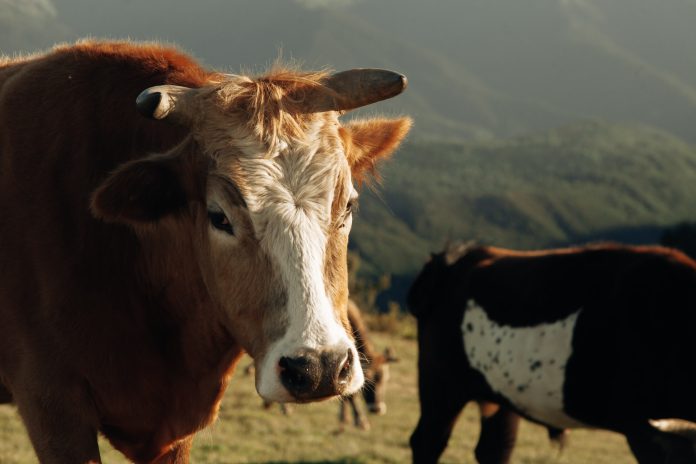“Bull management in preparation for the upcoming breeding season is important for optimum cattle operation productivity and profitability,” says Patrick Davis, MU Extension Livestock Field Specialist. Davis urges cattle producers to use management strategies discussed below to prepare bulls for the breeding season to achieve successful pregnancy rates.
“The bull’s energy status is important as he enters the breeding season,” says Davis. Davis urges cattle producers to manage bulls at a body condition score 6 (which is a smooth fat cover appearance throughout) as they enter the breeding season. This body condition score ensures the bull has adequate energy reserves to meet his energy needs to maintain his body and service cows during the breeding season.
Bull structural soundness is important as he enters the breeding season. “Hoof claw set and foot angle evaluation are a good way to evaluate bull structural soundness,” says Davis. Both measurements are evaluated on a 1 to 9 scale with the optimum range being 3 to 7. Davis urges cattle producers to maintain bulls within the optimum range for both measurements to ensure they are structurally sound enough to service cows during the breeding season.
“Bull health and vaccination status is important as the bull enters the breeding season,” says Davis. Davis urges cattle producers to work with their veterinarians to ensure bulls are healthy and up to date on their vaccinations before the breeding season. This helps promote optimum health and productivity from the bull and makes sure the bull is not bringing a health problem into the cattle herd.
Finally, Davis urges cattle producers to schedule a bull breeding soundness exam (BSE) on their bulls with their veterinarian. The BSE evaluates the semen quality and reproductive tract to make sure the bull is acceptable to breed cows during the breeding season. In addition, the exam is a good time to evaluate and vaccinate the bull for the things mentioned earlier. The BSE helps to identify those low fertility bulls and bull owners can replace them with acceptable fertility bulls to promote optimum pregnancy rates during the breeding season.
“MU Extension partners with local veterinarians and ZOETIS to provide bull management education during BSE Clinics in Southwest Missouri,” says Davis. MU Extension Livestock Field Specialist will provide education in foot scoring, body condition scoring, genomic testing, and the BSE. The partnership with ZOETIS allows participating veterinarians to provide rebates on vaccinations and dewormers given to the bulls during the clinics. If cattle producers want to schedule their bulls for one of the March BSE clinics listed below, please contact the veterinary clinic.
March 3rd – Barry County Veterinary Clinic, Cassville, MO
(417) 847-2677
March 22nd – Countryside Veterinary Clinic Aurora, MO
(417) 678-4011
March 23rd – Diamond Veterinary Clinic, Diamond, MO
(417) 325-4136
March 28th – Dake Veterinary Clinic Miller, MO
(417) 510-5105
“Whether you test your bulls through the BSE Clinics or with your local veterinarian, get them tested,” says Davis. Using bulls with poor fertility or structural problems hinders their ability to breed cows causing an excessive number of open cows, and less calves to sell, which leads to reduced operation profit potential. For more information related to the BSE Clinics or bull management contact Davis at the Cedar County MU Extension Center at (417) 276-3313 or by email at [email protected].
















